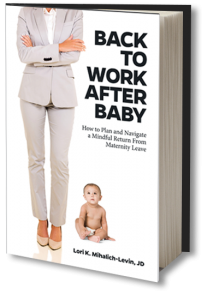 When I first had my oldest son, I wasn’t particularly inclined to think of raising him as a team sport. Yes, my husband and I made (and still make) a great team – of two.
When I first had my oldest son, I wasn’t particularly inclined to think of raising him as a team sport. Yes, my husband and I made (and still make) a great team – of two.
But I seemed to internalize a subconscious societal message that we were meant to “figure out” how to take care of our baby ourselves. I had heard the “lean on your village” advice, but my pride, self-sufficiency, and determined independence made relying on others a challenge.
Taking my baby to daycare came with guilty thoughts that somehow I was improperly “outsourcing” my parenting of him. And that I was abdicating some long-held duty of yesteryear.
“Alloparents” Are Normal
As a working mom, it reassured me immensely to learn that so-called “alloparents” have been critical to child rearing for pretty much all of human history. As I wrote in this post about transitioning your baby to childcare, I picked up the term “alloparents” from Brigid Schulte’s Book, Overwhelmed: Work, Love and Play when No One Has the Time.
Here’s a good introduction to the idea, from the book: [Context: Brigid is interviewing Sarah Blaffer Hrdy, an evolutionary anthropologist, and they’re discussing Kung women in the Kalahari Desert in Africa, 2,000 years ago]:
“The whole idea that mothers stayed at camp and the men went off to hunt? No way! These women were walking thousands of miles every year with their children. Or if it was not safe, they were leaving them back at camp.” She pauses to drive that point home: Sometimes mothers left their children back at camp. The children were with their fathers, older siblings, grandparents, relatives, and other trusted, nurturing adults – people Hrdy calls “alloparents” (“allo” means “other than” in Greek). “It’s natural for mothers to work. It’s natural for mothers to take care of their children,” she says. “What’s unnatural is for mothers to be the sole caretaker of children. What’s unnatural is not to have more support for mothers.”
Who’s On Your Teaching Team?
I remember the relief I felt in discovering in my children’s daycare teachers a veritable swat team of people who could teach him (and me!) things I had no clue about. They taught him how to fall asleep on his own in a crib. And how to write his letters. They taught me what kinds of finger foods we could try at different stages. And how to commit to an answer of “no”.
Fast forward to a time in our lives when parenting isn’t so much about basic survival anymore. Rather, now that our boys are 6 and 8 years old, parenting is more about teaching them specific skills, new games, and how to be human in the world.
For me, it’s been so incredibly fun to watch a whole village of other people, young and old, teach our children things. Yes, I know how to play the piano. And yes, I could technically teach my children. But after a few short and frustrating attempts to start one of our kids on the basics, I realized he was going to listen much better to someone other than Mom.
Our parents’ helper taught my oldest son a board game called Stratego, and an after-care teacher taught him chess. A gymnastics coach taught my youngest how to flip upside down on a trampoline (yes, heart-attack inducing, but cool). And my heart glowed to hear my oldest quote his third grade teacher when I was having a bad day. “My teacher says everyone has bad days, Mommy, and that bad days are usually followed by good ones. So don’t worry, Mommy. You’ll turn it around.”
Are There Skills You Don’t Have But Want Your Children to Learn?
My husband and I have had great success enlisting the help of a professional organizer to assist in making sense of our respective home offices. Imagine our surprise, however, when our sons started asking if Steven (our organizer) could please come and help them with messes in their own rooms. They were literally begging us to invite him over, as my husband and I looked at one another quizzically. “Well, why not?” we figured. These were good skills for someone to grow up with!
So Steven came on a Sunday and spent an hour with each of our children. And it was like watching a miracle worker. He sought early buy-in, worked with their individual personalities, turned the project into a game for my little guy, and taught my oldest the difference between items used for “play” versus “display.” Talk about giving language to things I really hadn’t ever thought much about before.
Challenge Your Assumptions
If you’re thinking you’re not giving enough to your children by not being with them 24-7 or not being their sole source of information about the world, I invite you to challenge your assumptions.
When you let go of an idea that you have a monopoly on the “right” way to approach a situation, learn something new, or handle a dilemma, you’re allowing new perspectives into your children’s worlds.
Yes, of course it’s fun and important for us to teach them new things. To watch them grow. And to love them with reckless abandon. And doing all of that is entirely possible, while simultaneously giving them the gift of learning from many different people. You don’t have to go at any of this parenting, surviving, working, or teaching thing alone, mama. Your team members are all around you, if you let them in.
 If you need more help getting your head in a better place to return to work after maternity leave, join us for the next session of Mindful Return.
If you need more help getting your head in a better place to return to work after maternity leave, join us for the next session of Mindful Return.
Want more practical tips on working parenthood? Check out my book, Back to Work After Baby: How to Plan and Navigate a Mindful Return from Maternity Leave


